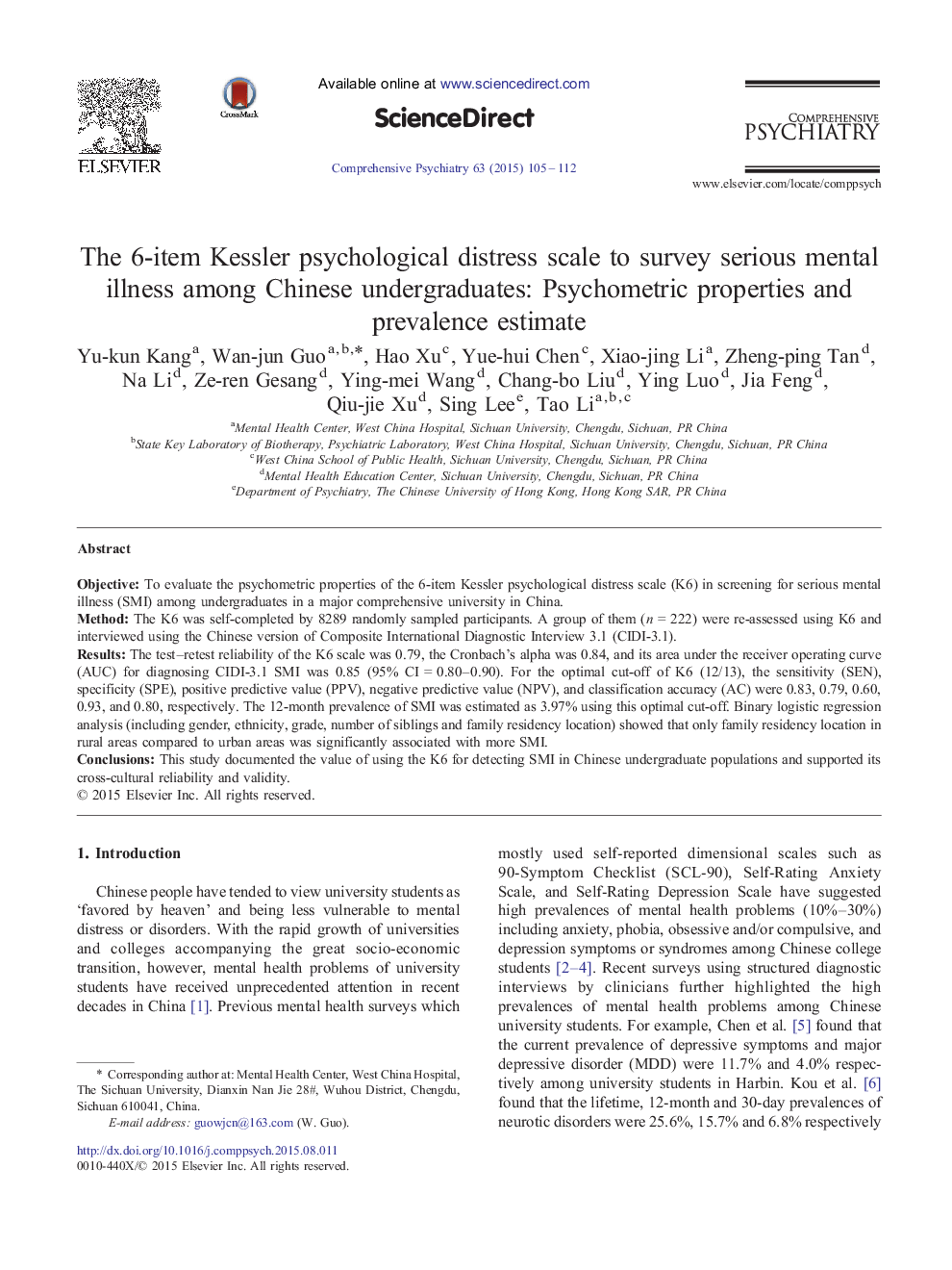| Article ID | Journal | Published Year | Pages | File Type |
|---|---|---|---|---|
| 318101 | Comprehensive Psychiatry | 2015 | 8 Pages |
ObjectiveTo evaluate the psychometric properties of the 6-item Kessler psychological distress scale (K6) in screening for serious mental illness (SMI) among undergraduates in a major comprehensive university in China.MethodThe K6 was self-completed by 8289 randomly sampled participants. A group of them (n = 222) were re-assessed using K6 and interviewed using the Chinese version of Composite International Diagnostic Interview 3.1 (CIDI-3.1).ResultsThe test–retest reliability of the K6 scale was 0.79, the Cronbach's alpha was 0.84, and its area under the receiver operating curve (AUC) for diagnosing CIDI-3.1 SMI was 0.85 (95% CI = 0.80–0.90). For the optimal cut-off of K6 (12/13), the sensitivity (SEN), specificity (SPE), positive predictive value (PPV), negative predictive value (NPV), and classification accuracy (AC) were 0.83, 0.79, 0.60, 0.93, and 0.80, respectively. The 12-month prevalence of SMI was estimated as 3.97% using this optimal cut-off. Binary logistic regression analysis (including gender, ethnicity, grade, number of siblings and family residency location) showed that only family residency location in rural areas compared to urban areas was significantly associated with more SMI.ConclusionsThis study documented the value of using the K6 for detecting SMI in Chinese undergraduate populations and supported its cross-cultural reliability and validity.
